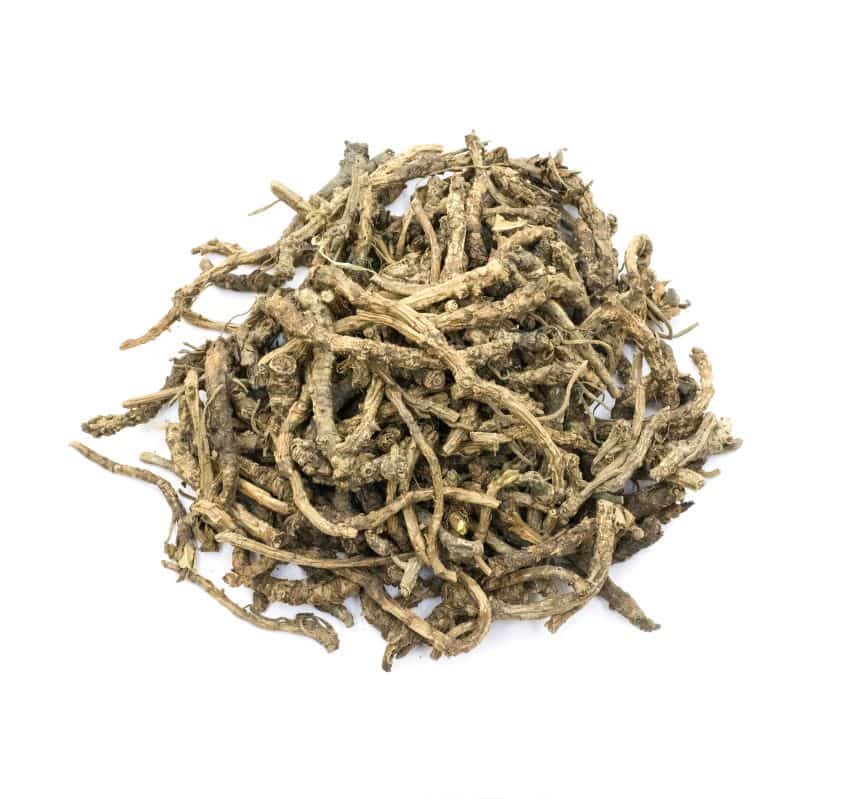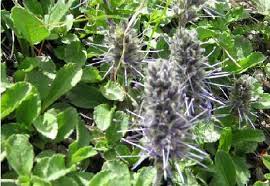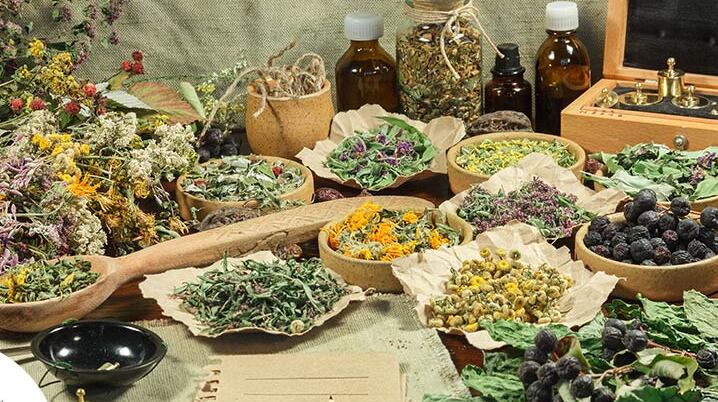Kutki is one of the most widely used traditional Indian herbs, used extensively in home remedies according to the Ayurvedic way of medicine. Benefits of kutki in ayurveda, which is a form of medicine that takes into account the individual in their entirety, originated in India.
Spices and plants with medicinal properties are abundant; all that is required of us is the ability to recognize them. Medical diagnoses are now far too widespread as a direct result of the sedentary lifestyles led by the vast majority of people in today’s society.
However, these ayurvedic medicines provide an absolute solution for most health anomalies, including stress, anxiety, digestive troubles, pain and inflammation, heart problems, liver anomalies, and skin ailments.
Although many herbs, roots, and leaves have been discovered and put to use in traditional medicine, there are still a vast number of therapeutic plants that have not yet been recognized or used. Kutki is a relatively unknown yet potentially life-changing ayurvedic herb that grows deep in the Himalayas.
Source of Kutki:
Kutki, native to the North-Western Himalayan area of India and Nepal, is a tiny perennial herb of excellent therapeutic value that is rapidly disappearing from the wild. In Ayurveda, the plant’s leaf, bark, and underground parts—especially its rhizomes—are all valued for their therapeutic value.
Because of its antioxidant and hepatoprotective characteristics, kutki is typically prescribed for conditions affecting the liver, such as jaundice. Together, the antioxidant property and the cardioprotective activity aid in enhancing cardiovascular health by reducing the risk of cardiovascular disease.

Rheumatoid arthritis sufferers can benefit from using anti-inflammatory kutki powder with honey twice a day to alleviate symptoms including joint pain and swelling. The Ropan (healing) property and Sita (pain relieving) quality of Kutki kwath (decoction) make it useful for the treatment of stomatitis (painful swelling inside the mouth) (nature). Applying a mixture of kutki powder, coconut oil, and rose water to a wound helps it recover more quickly.
What Kutki is all about:
Katuka, more commonly known as Kutki, is a powerful medicinal herb used for centuries to treat liver disease. Over the past few years, as more is learned about this miraculous plant and its ever-increasing demand on the national and international market, a number of pharmaceutical companies have begun to extract powerful hepatoprotective drugs and compounds from the roots of Kutki and formulate them into effective medications.
Kutki, or Picorrhiza kurroa on the botanical name, is a member of the Scrophulariaceae family. The herb’s bitter flavor inspired its Greek name: picroz (meaning “bitter”) and “rhiza” (meaning “root”). This eastern root is revered for its powerful bitter flavor and is claimed to be cooling, purifying, and anti-bacterial in nature.
Kutki’s potent antibacterial, anti-inflammatory, detoxifying, and Pitta-calming effects make it a desirable herbal antibiotic choice. Kutki, being a bitter agent, is excellent for enhancing the digestive fire, facilitating healthy removal of extra fat and cholesterol, and stimulating the general metabolism, making it an ideal main herbal component for any weight-loss plan or diet.
Kutki’s Physical Attributes:
The average height of a kutki plant is between 20 and 30 centimeters. The plant has long, tubular, straight, or slightly curved roots that are mainly linked with rhizomes and feature a few longitudinal and spotty scars. Rhizomes, which are the plant’s edible underground stems, are often thick and sub-cylindrical in shape, either straight or curved and a greyish-brown color.
The stems of this plant are small, frail, green, and slightly hairy; they creep along the ground. The leaves are 5-15 centimeters in length, oblanceolate in shape, toothed, and taper to a winged stalk at the base. Small, 5-lobed, whitish, or lavender flowers appear on cylindrical spikes. The flowering season is very lengthy, typically running from June to August. After the pollination process, a small, two-celled, spherical capsule with four valves and several white, oblong seeds develops.
In the Himalayas, kutki prefers cooler, higher altitudes. Moist rocky crevices and sandy-clayey textured soil are ideal growing conditions for this plant, which can be found from timberline to alpine elevations. Its original range includes much of India, Pakistan, Southeast Tibet, Nepal, North Burma, and West China, all inside the Himalayas. Himalayan states of Jammu and Kashmir, Himachal Pradesh, Uttarakhand, and Sikkim are home to their native Indian habitat.
Nutritional Value of Kutki:
Kutki is full of phytochemicals. Some of the chemical constituents of kutki are mentioned here:
- Kutcoside
- Iridoids
- Glycosides
- Kutkin
- Drosin
- Phenolics
- Carbohydrate D-mannitol
- Cucurbitacins
- Terpenes
- Alkaloids
- Terpenes
- Apocyanins
- Aromatic acids like vanillic acid and vanillic acid
The nutritional value:
| Nutrient | Amount |
| Protein | 9.7 gm |
| Carbohydrate | 60.9 gm |
| Fat | 5.2 gm |
| Iron | 9.3 mg |
| Phosphorous | 220 mg |
| Calcium | 17 mg |
| Magnesium | 114 mg |
| Energy | 329 Kcal |
| Crude fiber | 7.6 gm |
| Ash | 5.4 gm |
| Thiamine | 0.30 mg |
| Riboflavin | 0.09 mg |
| Niacin | 3.2 mg |
Kutki is known to have the following characteristics:
- An anti-inflammatory effect is possible.
- It has the potential to reduce blood sugar.
- Possible reduction in the onset of ulcers.
- It has the potential as an antioxidant.
- Possible fever reduction.
- Stool elimination might be less of a hassle (stool softener).
- It has antimicrobial properties, at least.
Some research suggests that it can inhibit the expansion of cancer cells. However, It has the potential to reduce cholesterol levels that are too high.
Possible Health Benefits:
The health benefits that have been linked to kutki are as follows;
1, Helps in controlling diabetes.
Damage to the eyes, bones, heart, and other organs is caused by the high levels of glucose in the blood that characterizes diabetes. Researchers found that kutki extracts lowered blood sugar levels in rats in 1999 study.
It also shows the ability to mitigate the harm caused by a molecule known as alloxan in diabetics, which holds promise for averting more diabetes-related illnesses. This research shows that kutki extracts may aid diabetics. A doctor should be consulted first, and the benefits of kutki powder for diabetes should be understood before it is taken.
2. It may be helpful in the treatment of obesity.
Excess fat accumulation in body tissue triggers the production of several inflammatory mediators, which can harm cells and lead to a metabolic disease known as obesity. Root extracts from the plant kutki have been shown to lessen the production of inflammatory mediators, according to research published in 2022 by Almeleebia et al. As a result, kutki may aid in inflammation and inflammatory illnesses, but its potential benefits should only be discussed with a medical professional.
3. May be useful in treating bacterial infections.
It is possible for bacteria and fungi to infect the body and then spread to other parts of the body by the production of toxins through the nose, eyes, skin, lungs, and other openings in the body. In 2022, researchers Almeleebia et al. observed that the phytochemicals present in kutki extracts might slow the spread of bacteria and fungi within the body.
It suggests that these extracts could be useful in treating or preventing bacterial and fungal illnesses. No one should try to treat themselves with medication. If you want to know if your doctor thinks kutki powder could help you, you should ask.
4. Might have a role in cancer treatment.
In terms of mortality rates, cancer ranks second worldwide. According to research published in 2011, kutki extracts have a high concentration of flavonoids, phenolic acids, and antioxidants, all of which have been shown to promote the death of cancer cells in several types of cancer, including breast, liver, and prostate cancers.
Cancer progression may be slowed with the use of kutki, according to the study. If you have any suspicions that cancer may be present, however, you should not attempt to treat it on your own. If you want to know if kutki can help you, you should talk to your doctor about it.

5. Kutki may be useful for treating liver disorders.
The liver is an essential organ for digesting fat, producing hormones, and purifying the blood. When it comes to jaundice, persistent fever, and viral hepatitis, kutki has been shown to be helpful, according to research published by Almeleebia et al. in 2022. The kutkin in its extracts helps keep the liver healthy by blocking the effects of things that are harmful to it. Kutki extracts contain phytochemicals that help mitigate the damage alcohol can do to the liver.
Though more studies are needed to confirm these findings, the current study suggests that kutki may be useful in the treatment and management of liver illnesses such as cirrhosis. You should talk to your doctor before using kutki for liver health, though, as self-medication is not recommended.
Also aids in the treatment of stomach ulcers.
Ulcers form in the digestive tract when the protective lining of the stomach or intestines is destroyed by stomach acid or intestinal bacteria. Research conducted in 2022 by Almeleebia et al. found that kutki root extracts can prevent gastrointestinal damage. It is useful for treating ulcers induced by the drug indomethacin.
By encouraging mucus production, the extract helps prevent ulcers in the digestive tract. To add insult to injury, it also reduces the generation of chemicals that contribute to the development of ulcers. Those afflicted with ulcers may get relief by using kutki, according to the study. Nonetheless, before trying any sort of self-medication, you should see a doctor.
Other possible applications of kutki include:
- It could be useful for treating gastrointestinal issues such as diarrhea, gas, bloating, abdominal pain, and burning.
- It may be useful for treating immune system problems.
- Kutki’s phytochemicals may neutralize heart-harming free radicals. It has the ability to protect the heart against disease.
- It has the potential to reduce cholesterol.
- It has the potential to aid with asthma control.
- Anaemia is something that could be helped by taking kutki leaf extracts.
There is a need for more research into the health advantages of kutki, despite the fact that new research methodologies have been used as a result of advances in both knowledge and technology.
How to Use Kutki For Potential Effect
Extracts of kutki’s roots, stems, and leaves can be taken in the form of capsules, powder, ‘churna,’ decoction, infusions, and confections for the treatment of a wide range of medical issues.
The following are some of the applications for kutki:
- To treat a wide variety of medical conditions, extracts of kutki roots, stems, and leaves can be prepared in a number of different forms, including capsules, powder, churna, decoction, infusions, and confections.
- It has astringent properties and can be administered topically to the skin in the event of minor abrasions.
- It is possible to serve it as an appetizer.
- In Ayurvedic medicine, jaundice is treated using either a decoction of kutki mixed with honey or kutki powder mixed with sugar.
- Kutki is also utilized in the production of ayurvedic medicine called “arogya vardinivati,” which is used to treat a variety of liver conditions.
- Ayurvedic practitioners combine kutki with other medicinal plants in order to treat conditions such as viral hepatitis and fatty liver.
- Kutki is an essential ingredient in the traditional Ayurvedic preparation of kwath, which is used to balance both vata and pitta.
Before starting any herbal supplementation program, you should talk to a doctor. Do not stop taking conventional medicine or switch to an ayurvedic or herbal treatment without first talking to your doctor.
Kutki Adverse Effects: Formulations containing kutki are thought to be safe when used in appropriate dosages. Nonetheless, a 2022 study by Almeleebia et al. found that a daily intake of kutki of more than 2,000 milligrams per kilogram (mg/kg) can have adverse effects.
There hasn’t been enough research done on humans to fully understand the potential dangers of kutki powder, so if you experience any strange symptoms, it’s advisable to see a doctor.

Safety Measures to Take When Using Kutki:
- Important safety measures to take before using kutki include:
- Avoid consuming any kutki formulations if you are breastfeeding.
- The safety of feeding kutki to young children or the elderly should be discussed with a medical professional.
- Do not take kutki if you have any preexisting medical conditions.
- Women who are expecting a child should avoid consuming kutki because of the potential for harmful consequences on both the mother and the unborn child.
Disclaimer:
The author’s views are his or her own. The facts and opinions in the article have been taken from various articles and commentaries available in the online media and Eastside Writers does not take any responsibility or obligation for them.
Note: Contact our Writers at www.eastsidewriters.com for writing Blogs/Articles on any niche. We have experts in various domains from Technology to Finance and from Spirituality to Lifestyle and Entertainment.







Pingback: Unlocking the Secrets of Brain Hormones: Understanding How These Powerful Chemical Messengers Regulate Your Body's Functions - Eastside Writers